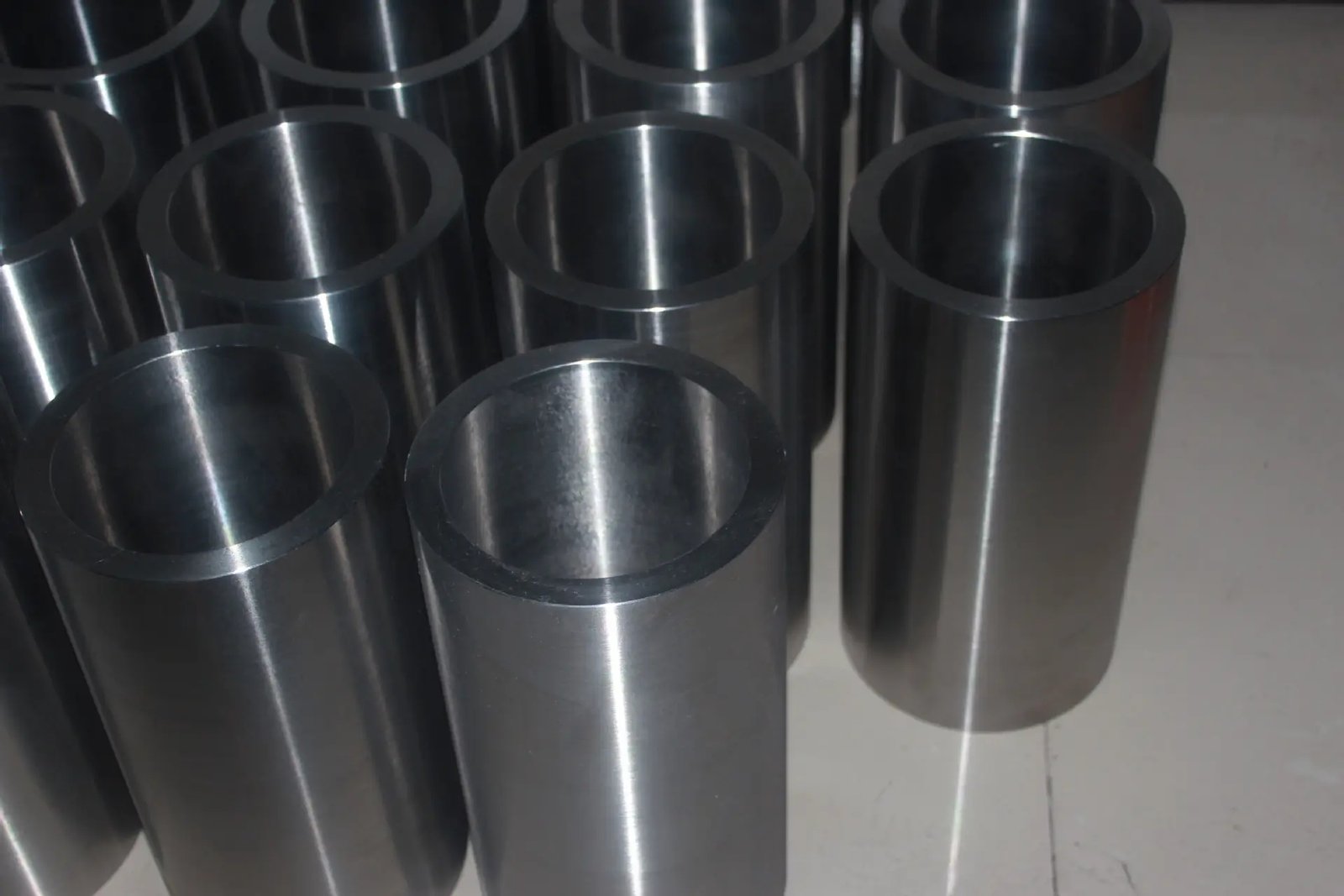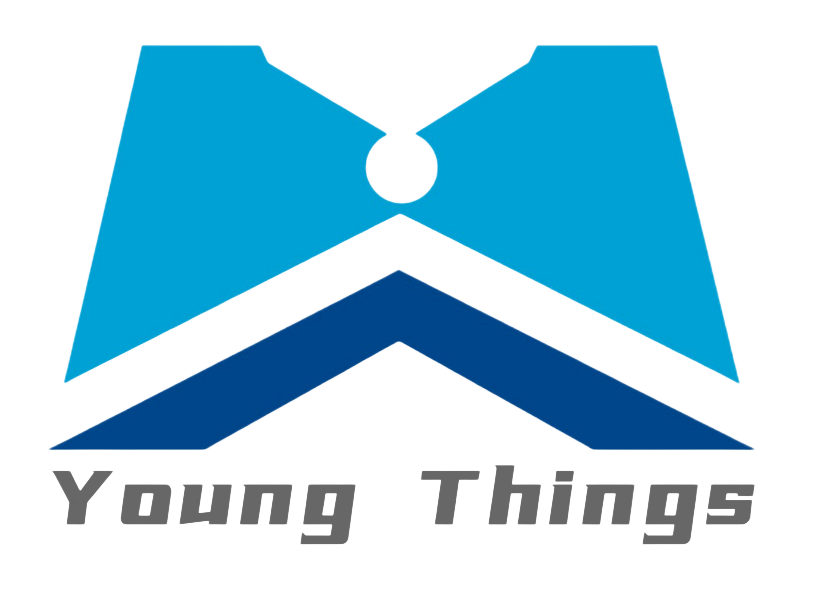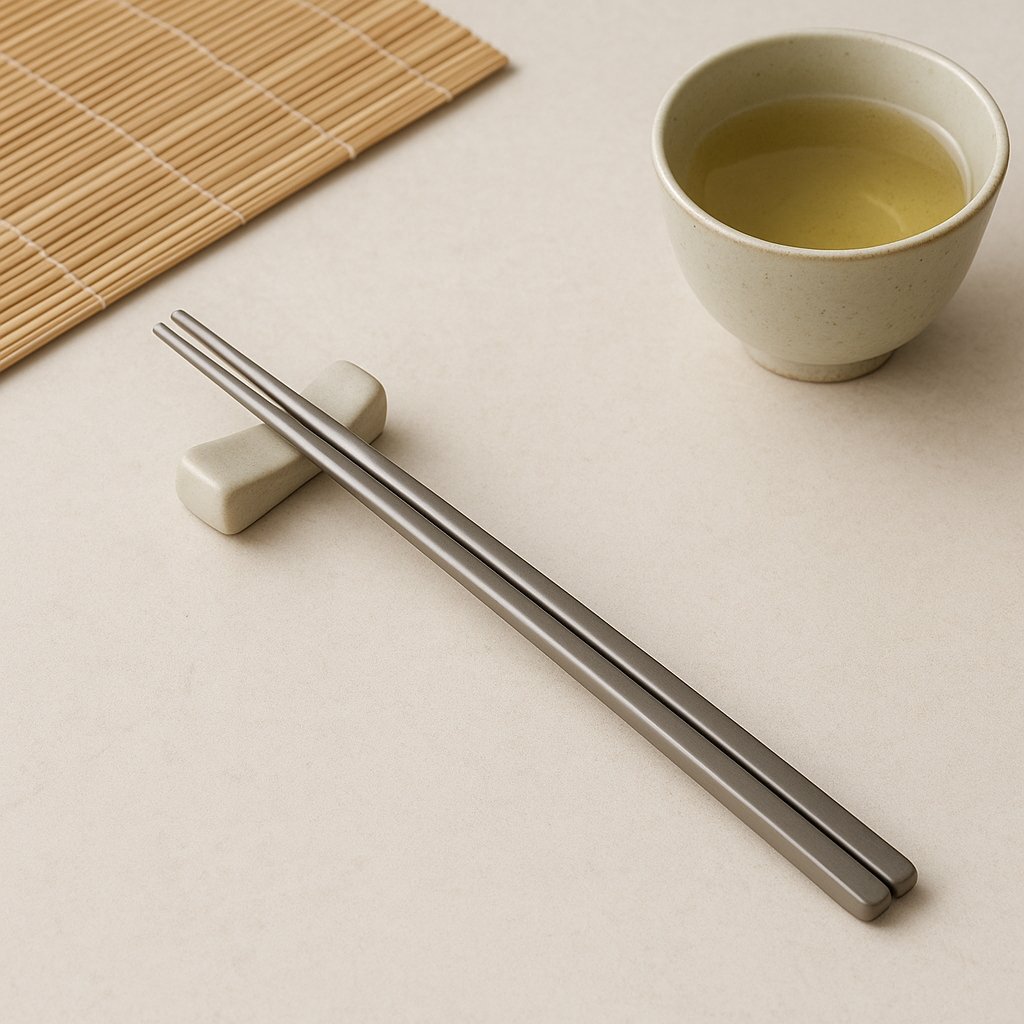In industrial applications, the wear resistance of titanium pipe fittings is crucial for their long-term reliable operation.Wear-resistant coatings significantly improve the surface hardness and corrosion resistance of titanium pipe fittings. This enhancement extends their service life and boosts performance stability. Carefully optimized coatings effectively resist wear and corrosion, even in harsh conditions. As a result, the service life of these pipe fittings can extend to over five years.Particularly in aerospace, chemical, and marine engineering fields, these coatings demonstrate exceptional application potential.This article delves into practical applications of various surface treatment technologies. It focuses on the principles, types, and critical roles of wear-resistant coating technology in industrial practice. The goal is to showcase its widespread application and tangible benefits in enhancing product reliability and durability.

At Young Things Metal Co. Ltd.,enterprise based in Baoji, China, we specialize in producing high-quality titanium pipe fittings.Through advanced wear-resistant coatings, our products are built to endure tough industrial environments. These coatings extend service life and ensure reliable performance. This reliability applies to various fields, including aerospace, chemical, and marine engineering.
1. Overview of Surface Treatment Technologies
As vital industrial materials, surface treatment technologies enhance the performance and durability of titanium pipe fittings. This section explores key surface treatment technologies in detail. These include electroplating and coating technologies, heat and chemical treatments, mechanical processing, and their applications in titanium pipe fittings.
1.1 Electroplating and Coating Technologies
- Electroplating:Electroplating involves dissolving metal ions in an electrolyte solution and depositing them onto titanium pipe fittings' surface as the cathode through electric current. This method precisely controls coating thickness and composition, thereby enhancing corrosion resistance and mechanical strength. Common electroplated metals include nickel, chromium, and copper, widely used in industries such as aerospace and automotive.
- Spray Coating:Spray coating technology uses spraying devices to deposit ceramic or metal powders uniformly on the surface of titanium pipe fittings. This process forms protective coatings.Spray equipment typically includes high-pressure gas and powder supply systems, impacting powders onto surfaces at high speeds.These coatings significantly improve wear and corrosion resistance of titanium pipe fittings. They are suitable for harsh environments like marine engineering.
- Chemical Plating:Chemical plating involves chemical reactions to form thin metal or alloy films on the surface of titanium pipe fittings. For example, adding reducing agents to solutions with metal ions allows these ions to deposit on the surface. This process forms films with specific properties. Chemical plating advantages include operation at lower temperatures and the ability to create complex shapes and microstructures.
1.2 Heat Treatment and Chemical Treatment
- Heat Treatment:Heat treatment adjusts the crystal grain structure of titanium pipe fittings. It controls heating and cooling processes to modify mechanical properties. For titanium alloys, heat treatment typically includes solution treatment and aging treatment. Solution treatment changes the solubility of alloying elements. This is followed by aging treatment, which forms strengthening phases. Together, these processes enhance the hardness, strength, and wear resistance of titanium pipe fittings. Heat treatment also improves corrosion resistance, making it suitable for high-temperature and chemically corrosive environments.
- Chemical Treatment:Chemical treatment includes surface oxidation, phosphating, and other chemical reactions to improve surface characteristics of titanium pipe fittings. For example, treating titanium pipe fittings' surface in acidic solutions containing oxidants can form dense oxide films, enhancing corrosion and heat resistance. Phosphating involves treating surfaces in phosphate salt solutions to generate corrosion-resistant and wear-resistant phosphate layers.
1.3 Mechanical Processing
- Polishing and Grinding:Polishing and grinding remove surface defects from titanium pipe fittings. These processes also reduce roughness to improve surface smoothness and machining accuracy. Polishing uses abrasives and polishing agents to finely treat surfaces, achieving mirror-like smoothness suitable for applications requiring high surface quality. Grinding uses sanding belts to remove rough surfaces. This process improves the appearance and performance of titanium pipe fittings.

- Machining:Machining involves precise processing of titanium pipe fittings. CNC machine tools and cutting tools are used to adjust dimensions, shapes, and surface quality. CNC machining meets high-precision requirements. It ensures the mechanical performance and surface quality of titanium pipe fittings meet industrial standards.
Each technology will be detailed based on its principles, application scope, and practical effects. This will provide readers with insights into how different surface treatments optimize the performance and reliability of titanium pipe fittings.
2. Wear-Resistant Coating Technologies Explained
2.1 Hard Alloy Coatings
- Principle:Hard alloy coatings are formed by depositing micrometer-sized hard particles on the surface of titanium fittings. These particles, such as tungsten carbide and titanium carbide, are applied through high-temperature spraying or electrochemical methods.The hard particles create a protective layer with high hardness and wear resistance. This layer effectively protects the titanium fittings from friction and wear.
- Advantages and Applications:Hard alloy coatings offer significant advantages, especially suitable for applications requiring long-term wear resistance and high strength.
Their main advantages include high wear resistance and corrosion resistance. This significantly extends the service life of titanium fittings and reduces maintenance costs.Petroleum drilling fittings, hard alloy coatings resist erosion from drilling fluids and formation wear. This reduces fitting replacement frequency and saves operational costs.Mechanical manufacturing and aerospace, these coatings enhance component wear resistance and durability. They ensure the long-term stable operation of equipment.Chemical equipment, hard alloy coatings resist strong acids and bases. They protect equipment from corrosion and extend its service life.Automotive manufacturing, these coatings are applied to engine cylinder liners and piston rings. They improve wear resistance, combustion efficiency, and reduce energy consumption and emissions.
2.2 Ceramic Coatings
- Principle: Ceramic particles offer excellent wear resistance, corrosion resistance, and insulation properties, effectively protecting titanium fittings from chemical corrosion and mechanical wear. Ceramic coatings serve as protective layers on titanium fittings. Technicians create these coatings using spraying or immersion methods, using ceramic particles for their composition. Ceramic particles enhance wear resistance, corrosion resistance, and insulation, providing effective protection.
- Advantages and Applications: Ceramic coatings demonstrate excellent wear resistance, corrosion resistance, and high temperature stability. Consequently, these coatings are widely used in various industries for titanium fittings in long-term operations under harsh conditions. In particular, in chemical equipment, ceramic coatings help prevent both chemical and high-temperature corrosion, effectively protecting equipment from erosion by chemical media and high-temperature fluids, which in turn extends its service life. In addition, in marine engineering, ceramic coatings are commonly used for seawater treatment equipment and offshore platform protection. Thanks to their excellent properties, these coatings resist seawater corrosion and biological fouling, ensuring stability and safety. In automotive manufacturing, ceramic coatings are applied to engine pistons and exhaust valves, where they improve wear resistance and thermal stability, reduce wear caused by high temperatures and friction, and ultimately extend engine life.
2.3 Polymer Coatings
- Principle:r emulsions. Technicians create polymer coatings on the surface of titanium fittings by applying polymer resin solutions or emulsions.Polymers offer good flexibility, wear resistance, and chemical stability, effectively preventing corrosion and wear on titanium fittings.
- Advantages and Applications: Manufacturers use polymer coatings to protect and decorate titanium fittings. These coatings offer good flexibility, wear resistance, and chemical stability. For example, in construction materials, polymer coatings help prevent surface wear and corrosion caused by sun and rain, thereby prolonging the life of buildings. Similarly, in medical device manufacturing, manufacturers apply polymer coatings to surgical instruments and implant surfaces. This approach improves biocompatibility and durability, thus ensuring the safe, long-term use of medical equipment. Moreover, in electronics manufacturing, polymer coatings are used to protect circuit boards and casing surfaces from chemical solvents and mechanical wear. As a result, they safeguard devices from external effects, ultimately enhancing product reliability and lifespan.
Each wear-resistant coating technology has its unique advantages and applicability. By understanding the applications and effects in different industries, readers can choose the best surface treatment solutions. These solutions enhance the performance and reliability of titanium fittings.Our titanium pipe fittings at Young Things Metal Co. Ltd. are treated with hard alloy coatings. These coatings enhance durability, especially in corrosive environments like chemical processing plants. They extend product life and reduce maintenance needs, providing a cost-effective solution for customers.
3. Case Study Analysis
Industries widely apply coating technologies. They significantly enhance equipment performance and reduce operating costs, benefiting many sectors.
Specific examples from titanium fittings and other fields show how wear-resistant coatings improve reliability and efficiency. These coatings play a critical role in enhancing equipment performance.
- Aerospace Industry:In the aerospace industry, titanium fittings are crucial in aircraft structures and engine components. They are an excellent material choice due to their strength and light weight.Aerospace engineers use wear-resistant coatings to enhance titanium fittings' performance under extreme conditions. These coatings improve corrosion and abrasion resistance, offering several key benefits.Titanium fittings in aerospace often face erosion from gases, chemicals, and mechanical wear. This is especially true in engines and aircraft structures. Wear-resistant coatings, like thermal barrier or diamond coatings, protect the surface from erosion and corrosion, extending service life.Applying these coatings also reduces maintenance costs. They decrease maintenance frequency and extend the replacement cycle of components, boosting overall efficiency.The durability of titanium fittings affects aircraft safety and reliability. Wear-resistant coatings enhance their performance in complex environments, ensuring the long-term safety of aircraft components.
- Chemical Industry:The chemical industry uses titanium fittings in corrosion-resistant equipment and pipeline systems, such as reactors and tanks.These systems operate in extreme environments, exposed to corrosive media and high temperatures. They require durable materials and effective coating protection.
Many choose titanium fittings for their excellent corrosion resistance and strength.They resist chemical erosion and maintain stability in high-temperature environments.To further enhance durability, the chemical industry uses wear-resistant coatings. Common coatings include polytetrafluoroethylene (PTFE), ceramic, or metal coatings. These coatings protect the surface of pipes and equipment from corrosion.Wear-resistant coatings extend the service life of titanium fittings. They reduce maintenance frequency and lower operating costs. By using these coatings, chemical enterprises ensure the stability and safety of equipment during long-term operation. This reduces downtime and maintains production efficiency.
Therefore, titanium fittings with wear-resistant coatings play a key role in protecting equipment and enhancing production efficiency in the chemical industry.
In the chemical industry, Young Things Metal Co. Ltd. has supplied titanium pipe fittings with advanced polymer coatings to a major refinery. These coatings have significantly improved the fittings' resistance to chemical corrosion and wear, reducing downtime and maintenance costs by over 20% over a five-year period.
When discussing the role of wear-resistant coatings, titanium fittings provide an important starting point. These coatings enhance the durability of aircraft structures and engine components. They also play crucial roles in other industries. For example:
- Petroleum Drilling Industry:In petroleum drilling, drill bits endure severe abrasion from rocks. This leads to a shorter lifespan and reduced efficiency. To address this, companies use wear-resistant coatings like diamond or titanium nitride on drill bits.These coatings significantly enhance wear resistance, extending drill bit lifespan by 2-3 times. By increasing drilling speed, they effectively shorten drilling cycles, thereby reducing drilling costs significantly.
- Automotive Industry:In the automotive industry, engine cylinder walls wear under high temperatures and pressures. This reduces engine power and increases fuel consumption.To mitigate this issue, automobile manufacturers have employed ceramic coating technologies using plasma spraying on engine cylinder walls. These wear-resistant coatings substantially reduce cylinder wall wear rates, enhance engine durability, and lower fuel consumption. Moreover, the coatings improve engine thermal efficiency, further reducing emissions. This dual benefit of enhancing engine performance while lowering maintenance costs highlights their critical role in the automotive sector.
- Mechanical Manufacturing Industry:In mechanical manufacturing, molds face friction and impact during production. This causes significant wear, affecting product quality and mold lifespan. Manufacturers now apply wear-resistant coatings like titanium nitride or tungsten carbide to mold surfaces.These coatings notably enhance mold durability, extending lifespan by 2-3 times. They also effectively improve product surface quality and dimensional accuracy, thereby reducing production costs.
These examples show the wide applications of wear-resistant coatings. They highlight the benefits in enhancing equipment performance and reducing costs.
Performance comparisons and cost-benefit analyses prove that wear-resistant coatings are essential for improving efficiency and economic benefits.
4.Future Development Trends and Prospects
As the chemical industry demands higher equipment durability and safety, titanium pipe fittings and their coatings show great development potential and market demand. The following comprehensive analysis outlines future developments:
- New Technological Developments:With advancements in materials science and coating technologies, more durable corrosion-resistant and wear-resistant coatings are expected. Researchers anticipate that coatings based on nanotechnology and composite materials will become significant directions for development.These technologies can further enhance coating sealing, durability, and environmental adaptability to meet increasingly harsh and variable working conditions.
- Environmental Friendliness:Under environmental protection and sustainability pressure, future corrosion-resistant coatings will become more eco-friendly. This includes low-VOC coatings, biodegradable coatings, and efficient recycling technologies. Chemical companies will focus more on assessing the environmental impact of coating materials and developing sustainability strategies to comply with regulations and social responsibilities.
- Market Demand:In the coming years, global demand for high-performance corrosion-resistant equipment will keep growing. The chemical industry’s expansion in regions like Asia-Pacific and the Middle East will drive demand for high-quality titanium pipe fittings and coatings. Faster renewal cycles of chemical equipment and technological upgrades will also promote investment in high-performance corrosion-resistant solutions.
In conclusion, titanium pipe fittings and their corrosion-resistant coatings will play a key role in meeting the chemical industry’s needs for durability, safety, and efficiency. With new technologies and growing demand, industry participants must innovate and optimize to meet challenges and seize opportunities.
Conclusion
As a forward-thinking company, Young Things Metal Co. Ltd. is actively researching new environmentally friendly coatings. These coatings aim to meet our high durability standards while also achieving global sustainability goals. Our goal is to provide innovative solutions that improve titanium pipe fittings' performance and service life while reducing environmental impact.
Looking ahead, wear-resistant coatings will evolve with technological innovation. The focus will be on developing more durable and eco-friendly materials and processes. Market demand is increasing for high-performance, low-maintenance solutions. Coating technologies will play a crucial role in improving production efficiency and equipment safety. At the same time, addressing environmental challenges and ensuring sustainable development will become a key industry focus. Balancing technology and environmental friendliness is vital. Wear-resistant coatings have already brought significant benefits to industry. Future advancements should aim for innovation and sustainability to meet market demands and support healthy industry growth.
For those interested in exploring advanced materials further, including our Titanium Pipe Fittings solutions, feel free to visit our website.
Share this article
Written by : 钛合金网
7 Comments
Leave A Comment
Follow us
Table Of Content




My brother suggested I might like this blog. He was totally right.
This post actually made my day. You cann’t imagine simply
how much time I had spent for this info! Thanks!
Thank you so much for your kind words! I’m really glad to hear that the post made your day. It’s great to know that the information was helpful to you. Feel free to reach out if you have any other questions or thoughts!
Hey just wanted to give you a brief heads up and let you know a few of the images
aren’t loading correctly. I’m not sure why but I think its a linking
issue. I’ve tried it in two different browsers and both show the same
results.
Hello, thank you for your reminder, but when I use the browser to open the article, the pictures in the article can be displayed correctly. Which picture are you referring to?
Thank you so much for your kind words! Glad it helped you. Feel free to reach out if you have any other questions or thoughts!
Ahaa, its nice discussion concerning this post here at this weblog, I have read
all that, so now me also commenting here.
Glad it helped you. Feel free to reach out if you have any other questions or thoughts!